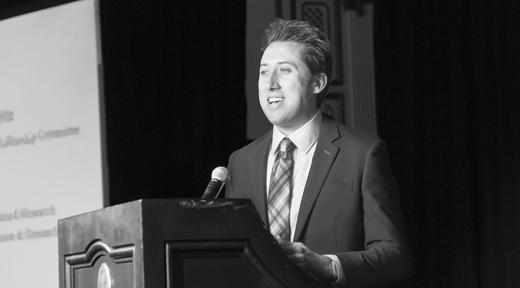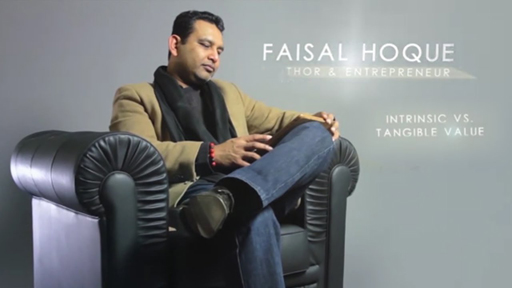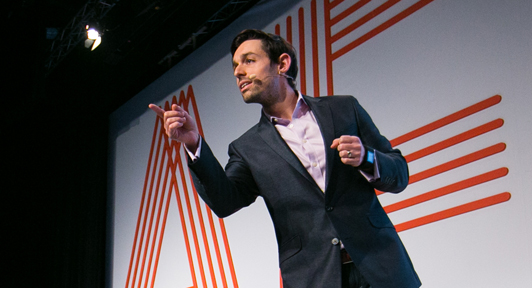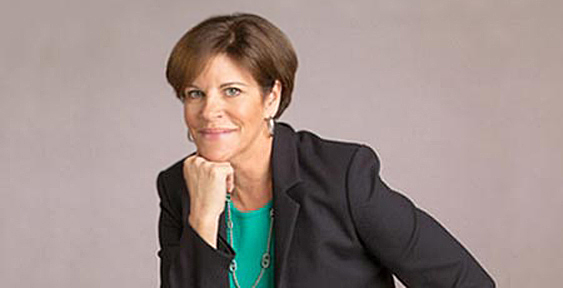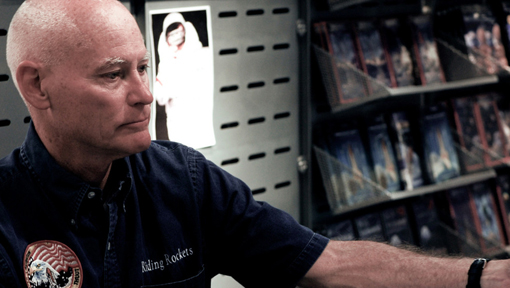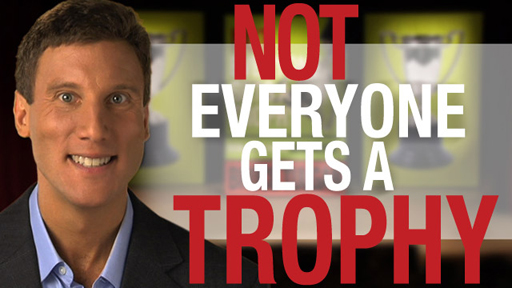
Leading Millennials in the Workplace
| When managers/leaders regularly and consistently spell out expectations and then measure performance in alignment with those expectations, it gives managers the chance to be more flexible and generous. | |
| |
 | Young people today have a dramatically different work ethic from the Baby Boomers. Millennials feel they deserve to “do what they love” instead of working just to work. What techniques have you used to help managers combine these two generational mindsets within the workplace? |
 | “Do what they love” is one thing that young people might want. Just remember– everybody wants something, and different people want different things. Others will do boring grunt work all day long, as long as they get something else they really want. For one person, it might be all about money, but for another it might be all about scheduling or location flexibility. And so on… Everybody wants something. But that is good news for employers because, after all, employers want something out of their employees too: lots and lots of great work done all day, every day. So employers, for their part, need to have something to offer in return.
Work is, ultimately, a transactional relationship. So in our management seminars we teach managers how to be strong and highly-engaged, and to systematically trade valuable rewards for the hard work and valuable contributions of their young, talented employees. One day at a time, one person at a time, we need to make the quid pro quo explicit. The approach we teach our clients is simple: flexibility goes hand in hand with accountability. It is simple, but not easy. Real accountability requires leaders/managers to be highly engaged with their employees every step of the way. When leaders/managers regularly and consistently spell out expectations, and then measure performance in alignment with those expectations, it gives managers the chance to be more flexible and generous. Millennials, like everyone else, work because they need to earn a living. But rather than organizing their lives around their careers, Millennials want to organize their careers around the kind of life they want to have. That means employers are much more attractive to Millennials (and much better at bringing out the best in them) when they are able to help young workers earn more of what they need and want. Many times this is not just money, but location and scheduling flexibility; the chance to work with interesting and supportive people; the chance to learn and grow; and the chance to make valuable contributions to the enterprise. |
 | What is the “under management epidemic," and how do you suggest turning the tide against it? |
 | In all of our workplace research over the last 21 years we keep coming back to the “under-management epidemic.” Unlike “micro-management,” “under-management” is not a household word. But it should be because it is everywhere, hiding in plain sight, costing organizations a fortune.
Our research shows that most leaders, managers, and supervisors (in organizations of all shapes and sizes) simply do not do enough leading, managing and supervising. They do not provide enough guidance, direction, support, feedback, training and coaching to their employees. They do not spend enough time in regular high-structure, high-substance communication. Instead, they communicate in ad-hoc hit-or-miss “touching base” or “let me know if you need me” kind of way, or only by monitoring emails or communicating in meetings. As a result, most managers do not make expectations sufficiently clear, they do not reiterate performance standards; they do not talk through the work in enough detail; they do not monitor, measure, and document performance; and they do not provide regular trouble-shooting when things are going wrong–or recognition and reward when things are going right. The reasons for this are very complex, but under-management is present in almost every workplace. The costs include: unnecessary problems; problems getting out of control that should have been solved quickly and easily; people doing their tasks/responsibilities incorrectly without even knowing it; squandered resources; personnel problems; loss of high performers; overall lower productivity, quality, and morale; and it is also much harder for managers to delegate work. What is the solution? First step, sound the alarm! Make leaders and managers at all levels more aware of under-management and help them identify it in their own organizations, workplaces and their own management practices. Step two, help managers get past the obstacles that prevent them from being stronger and more highly engaged:
-False fairness – the myth that the way to be fair is to treat everybody the same. -False “nice-guy” syndrome – the myth that to be a strong manager, you have to be a jerk and that if you are weak then you are somehow being “nice.” -Fear of conflict. -Fear of HR. -Fear that you are not a ‘natural leader’ and therefore can’t do the basics of strong highly-engaged management. And then, of course, the number one thing that gets in the way: being a strong manager takes time. Managers always think they just don’t have enough time to be strong and highly-engaged. Step three, once we help managers get past these obstacles, what we do is teach them to get back to the old-fashioned basics of managing, the fundamentals. Build regular, ongoing high-structure high-substance communication into your relationship with every single person. Build a regular, structured one-on-one dialogue with your direct reports. Make your team meetings much better. Basically: -Get in the habit of managing every day -Build a custom dialogue with every person you manage -Learn to talk like a teacher or a coach -Make accountability a process, not a slogan -Make expectations clear -Track performance every step of the way -Solve small problems before they turn into big problems -Reward performance – do more for people when they go the extra mile. |
| Millennials want more money, more flexibility, more training, more interesting projects, and more exposure to decision-makers. Yes, they want more of everything! | |
| |
 | Several of your books deal with managing Millennials. What are the issues related to employing Millennials? |
 | We began tracking the Millennial Generation in the late 1990s. Ever since, we’ve kept our finger on the pulse of this very large and very important cohort through many twists and turns.
Our approach is based on what is now decades of research. Leaders and managers of Millennials tell me every day that our approach works for them because it is filled with practical step-by-step solutions for recruiting, on-boarding, training, performance-management, motivation, retention and leadership-development. So many of the other so-called “experts” on the Millennial Generation are still giving managers such bad advice. For instance: telling managers they should praise Millennials regardless of performance; reward them with trophies just for showing up; put hand-held-devices in their hands and then leave them alone to manage themselves; let them come to work whenever they feel like it (and bring their dogs); eliminate managers; and try to make work “fun.” For 99% of managers, that advice is nonsense. Millennials are NOT a bunch of disloyal, delicate, lazy, greedy, disrespectful, inappropriate slackers with short attention spans– who only want to learn from computers, only want to communicate with hand-held devices, and won’t take “no” for an answer. Our research demonstrates clearly that Millennials want leaders who take them seriously at work, not leaders who try to humor them; leaders who set them up for success in the real world, not leaders who pretend they are succeeding no matter what they do. I hear from managers on the front lines every day and the results are clear, Millenials need: -Strong, highly-engaged managers; -Structure and boundaries; -Guidance, direction, support and coaching; -Clear expectations; -To know that somebody is keeping score; -To understand the quid-pro-quo of work every step of the way. Yes, of course, Millennials want more money, more flexibility, more training, more interesting projects, and more exposure to decision-makers. Yes, they want more of everything! But they don’t expect any of it on a silver platter. They just want to know, every step of the way: “Exactly what do I need to do to earn that?!” Every day, in our seminars, I teach leaders and managers the strategies and tactics to do that. Nonetheless we are fighting against very strong widespread myths and bad management advice. This generation is still vastly misunderstood and leaders and managers are still struggling to engage, motivate and retain the best young workers today. Especially challenging are today’s newest young workers – the second wave Millennials who are flooding into the workplace. |
| Soft skills include many of the non-technical skills – the old-fashioned basics – like positive attitude, good work habits, people skills, problem solving, citizenship and teamwork. | |
| |
 | What are some of the soft skills Millennials are missing? |
 | Soft skills may be harder to define and measure than hard skills, but they are just as critical. Soft skills include many of the non-technical skills – the old-fashioned basics – like positive attitude, good work habits, people skills, problem solving, citizenship and teamwork. Our research shows that there is a growing gap between the needs and expectations of employers and the soft skills of their employees, especially their new, young employees.
By the way, the soft skills gap is definitely an issue relevant to workers of all ages. But the issue is one of particular relevance when it comes to today’s young talent. |
 | What problems do these missing soft skills pose to companies? |
 | Soft skills matter a lot. The cliché is that people get hired because of their hard skills, but people get fired because of their soft skills.
When employees have significant gaps in their soft skills there are significant negative consequences… Potentially good hires are overlooked. Good hires go bad. Bad hires go worse. Misunderstandings abound. People get distracted. Productivity goes down. Mistakes are made. Customer service suffers. Workplace conflicts occur more frequently. Good people leave when they might have otherwise stayed longer. It robs so many employees of greater success and causes so many managers so much aggravation and so many unnecessary problems. |
 | Recognition programs are a large part of most companies today, but you have said that, “not everyone gets a trophy.” Do you think recognition programs are the best way to engage workers today? |
 | Systematic recognition is critical to success when it comes bringing out the best in Millennials. The key is doing it right.
You might think a generation raised on mantras like “we’re all winners” and “everyone gets a trophy” wouldn’t be particularly competitive, but that is not the case. While the self-esteem movement was chipping away at Millennials’ competitiveness, the testing movement was building it back up. Still, testing breeds a different kind of competitiveness: competition against standards and benchmarks, against averages and means, and against one’s own past performance. Think about a video game that a Millennial might practice and practice, beating one high score after another, set by themselves. He or she wins every time, and nobody has a reason to feel bad. That’s the kind of competition Millennials are looking for: they want to compete against themselves in a safe environment where they can try over and over again to improve on their own performance benchmarks. When Millennials know you are keeping track of their day-to-day performance, their measuring instinct is sparked and their competitive spirit ignited. Keeping close track of their work tells them that they are important and their work is important. The process motivates them to perform because they want to get credit, score points, earn more of whatever there is to earn. Yes, they want to earn gold stars. Just remember that if you are going to give out gold stars or points of any kind, you have to make it very clear every step of the way exactly how those points can be earned—or lost. You need a system. |
 | What effective rewards or incentives can an employer offer Millennials? |
 | Formal gold stars and point systems are not always necessary. You will get a similar result as long as you make it clear that you are paying close attention to what they are doing and keeping score, one way or another.
Have regular one-on-one conversations where you ask for an account of what the person has done since your last conversation: “What concrete actions did you take? Did you meet the expectations we spelled out? Did you do all the items on your to-do list?” Then offer credit for the items done and take note of the items not yet done. You might say, “You did a great job on A, B, and C. But on D, you fell a little short. So that’s three out of four for today. Let’s talk about how you are going to do D next.” Another approach is to help Millennials keep track of their own work by using self-monitoring tools like project plans, checklists, and activity logs. Millennials can monitor whether they are meeting goals and deadlines laid out in a project plan, make notations within checklists, and report to you at regular intervals. Activity logs are diaries that Millennials can keep, noting contemporaneously exactly what they do all day, including breaks and interruptions. Each time he or she moves on to a new activity, they might note the time and the new activity. By using these tools, Millennials can document their own hard work every step of the way and build their own track record of success |
| In every dimension, the world is becoming more diverse and more integrated. Generation Z will be the most diverse workforce in history, by far. | |
| |
 | What valuable qualities do Millennials bring to the workforce today? |
 | Today’s second-wave Millennials -- those we call “Generation Z” -- will show up with the latest and greatest tools and tricks, not to mention energy and enthusiasm and new ideas. Indeed, many of them seem to have developed almost “super-powers” in their chosen areas of interest and focus. They are often masters of the newfangled.
Remember, they are the first truly global generation --- connecting and traveling to work across borders in every direction and combination. They are also the first true ‘digital natives.’ They learned how to think, learn and communicate in a never-ending ocean of information. Theirs is an information environment defined by wireless internet ubiquity, wholesale technology integration, infinite content, and immediacy. They have always had infinite access to information and ideas and perspectives ---unlimited words, images, and sounds. Meanwhile, in every dimension, the world is becoming more diverse and more integrated. Generation Z will be the most diverse workforce in history, by far. That’s true in terms of geographical point of origin, ethnic heritage, ability/disability, age, language, lifestyle preference, sexual orientation, color, size, and every other way of categorizing people. Equally important, Gen Zers look at every single individual, with his/her own combination of background, traits and characteristics, as his or her own unique diversity story. They value difference, uniqueness, and customization, most of all their own. |
 | Employees are always looking for constructive feedback from their managers; what are some tips for balancing critique and praise? |
 | The key is to build and maintain an ongoing, one-on-one dialogue with every person you manage. That’s where the balance comes from – the regular ongoing dialogue. Talk about what’s going right, wrong, and average every step of the way. What needs to be done? What are the next steps? And the next steps after that? Every step of the way:
-Remind everybody of broad performance standards regularly. -Focus on concrete actions within the control of the individual employee. -Monitor, measure, and document individual performance in writing. -Provide regular candid coaching style feedback. -Follow through with real consequences and rewards based on performance in relation to expectations. |
 | Did you ever have to deal with a “bad boss” or a poor manager in your work life? If so, how did you handle the issue? |
 | Other than 428 days working as a lawyer at a Wall Street law firm, I’ve never really had a job. That’s mostly a joke: I always had jobs growing up.
I was a Page in the United States House of Representatives in 1983-84 when I was a junior in high school. I had internships in Massachusetts State Government. I had an internship in the Irish Parliament my junior year in college. I worked in various jobs all through law school. But 428 days into my legal career – my first real job – I left to write my first book MANAGING GENERATION X. So… I never really had time to have a “bad boss” who really mattered to me very much. Everything I know about management comes from our research – now more than 21 years running. Regarding bad bosses, there is a whole chapter dedicated to dealing with bad bosses in my 2010 book IT’S OKAY TO MANAGE YOUR BOSS. The chapter is called “What if your boss really is a jerk” and provides strategies for the nine most common “jerk boss” scenarios. =============================================== |

